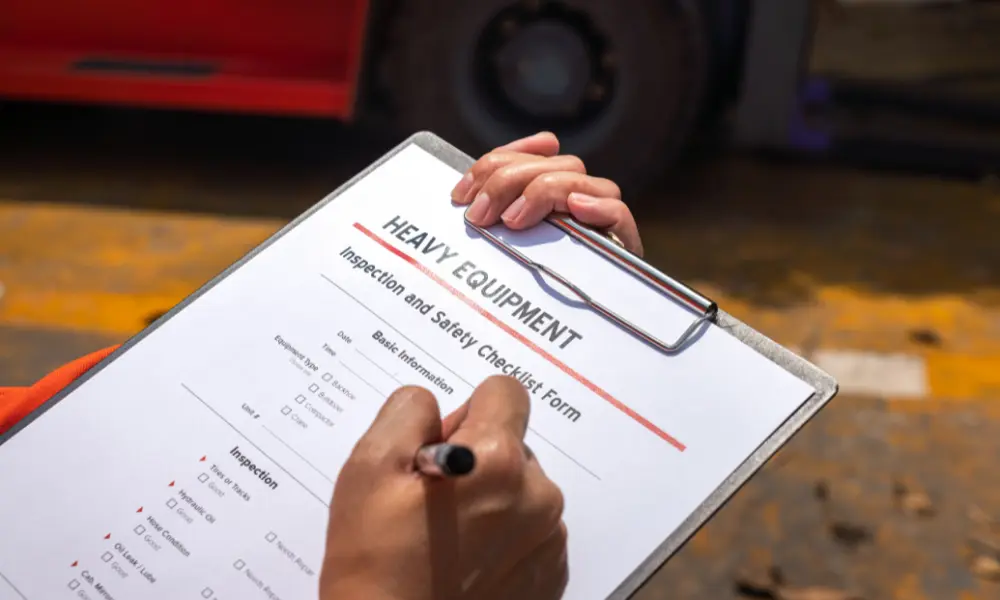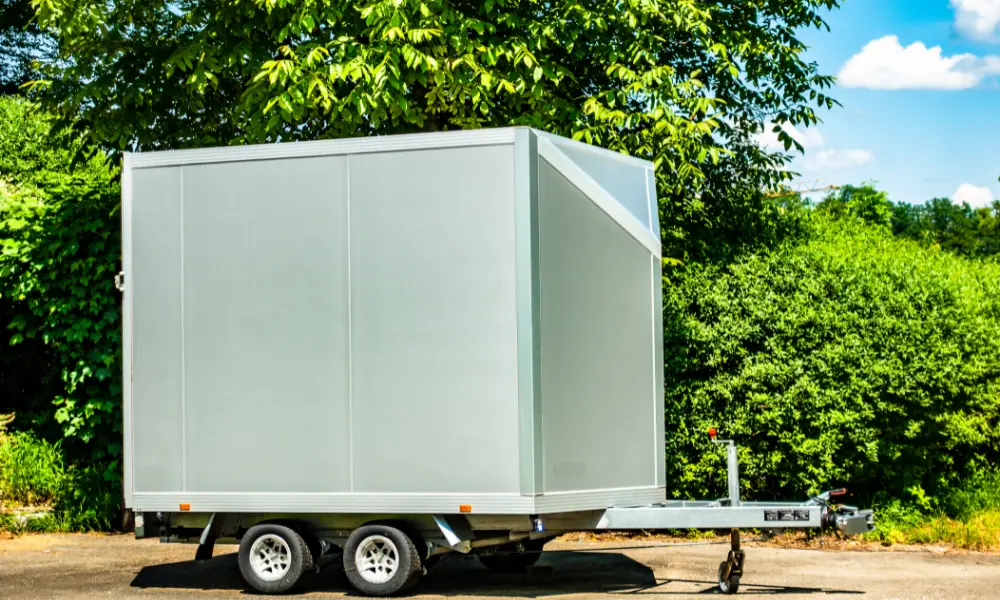Moving to Illinois or just bought a vehicle? You’re probably confused about what inspections you need. Don’t worry—most Illinoisans get this wrong. Here’s the truth: Illinois doesn’t require what you think it does. Let’s clear up the confusion and get you legally on the road.
Illinois Doesn’t Require Safety Inspections for Most Vehicles
Here’s the surprise: if you drive a regular car, truck, or motorcycle, you don’t need a periodic safety inspection in Illinois.
That’s right—no annual checkup of your brakes, lights, or tires unless you’re driving something specific.
Illinois scrapped mandatory safety inspections for private passenger vehicles decades ago. The state relies on federal safety standards and driver responsibility instead.
What Vehicles DO Need Safety Inspections?
The Illinois Department of Transportation (IDOT) requires safety inspections only for:
- Heavy commercial trucks over 10,000 pounds
- Buses (school buses, charter buses, transit buses)
- Tow trucks
- Limousines
- Medical transport vehicles
- Taxis used for school purposes
- Rebuilt salvage vehicles (one-time inspection)
If you’re hauling freight or passengers for business, you’re on the hook. Everyone else gets a pass.
How Often Commercial Vehicles Need Inspection
Commercial operators can’t escape this. Here’s the schedule:
- Intrastate carriers (operating only in Illinois): Every 6 months
- Interstate carriers (crossing state lines): Every 12 months
- School buses: Every 6 months or 10,000 miles, whichever comes first
The Illinois State Police conducts random roadside inspections, too. A valid sticker doesn’t guarantee you’ll pass a surprise check.
The Real Inspection Most Illinois Drivers Need: Emissions Testing
This is what trips people up. When Illinois says “inspection,” they usually mean emissions testing—not safety.
The Illinois Environmental Protection Agency (IEPA) runs this program to comply with the federal Clean Air Act. If you live in certain counties and drive a gas-powered car, you’ll need to test every two years.
Who Needs an Emissions Test?
You’re required to test if you check all these boxes:
- Your vehicle is 1996 or newer
- It runs on gasoline (not diesel or electric)
- It’s 4+ years old
- You live in an “affected area”
Affected areas include:
- Chicago region: Cook, DuPage, Kane, Lake, McHenry, Will counties, plus parts of Grundy (Aux Sable, Goose Lake townships) and Kendall (Oswego township)
- Metro-East St. Louis region: Madison, Monroe, St. Clair counties
Live outside these counties? You’re exempt—even if you drive a gas guzzler.
What Gets Tested (It’s Not What You Think)
Forget the tailpipe test. Illinois uses an OBD (On-Board Diagnostics) scan for vehicles 1996 and newer.
A technician plugs a scanner into your car’s computer port. The test checks:
- Is your Check Engine light on?
- Are emission-related error codes stored?
- Are the vehicle’s internal monitors ready?
That’s it. Takes about 10 minutes. No exhaust probe, no treadmill for your car.
Where to Get Tested (And What It Costs)
The Illinois Air Team offers three options:
- Testing stations (drive-thru facilities)
- Self-service kiosks (many are 24/7)
- Mobile testing units (pop-up locations)
Best part? It’s completely free for your mandatory biennial test. The program’s funded by gas taxes, not user fees.
Want a voluntary test (like before buying a used car)? That’ll cost you $20 cash.
Vehicles That Skip Both Inspections
Not every vehicle needs testing. Here’s who gets a free pass:
Exempt from emissions testing:
- Electric vehicles (EVs)
- Diesel passenger cars
- Motorcycles and scooters
- Vehicles from 1967 or older
- Antique vehicles with antique plates
- Farm equipment
- Vehicles over 14,000 pounds
Exempt from safety inspections:
- All passenger cars (first division vehicles)
- Pickup trucks and SUVs under 10,000 pounds
- Motorcycles
- Recreational vehicles (RVs)
- Antique vehicles
- Farm tractors and equipment
Got a 2020 Tesla or a classic 1965 Mustang? You’re golden on both fronts.
What Happens If You Fail the Emissions Test
Don’t panic. About 10-15% of vehicles fail initially.
You’ll get three documents:
- Vehicle Inspection Report (your test results)
- Repair Shop Report (list of certified mechanics)
- Repair Data Form (for documenting fixes)
Take your car to a mechanic who specializes in emissions repairs. They’ll diagnose the problem—often it’s a faulty oxygen sensor, catalytic converter, or EVAP system leak.
The Repair Waiver Option
Spent a fortune on repairs but still failing? You might qualify for a waiver.
Requirements:
- Failed the test twice
- All emissions equipment is present and connected
- Spent at least $1,146 on eligible repairs (as of 2025)
The waiver lets you renew your registration despite failing. But your car’s still polluting, so fix it when you can afford to.
New to Illinois? Here’s Your Inspection Checklist
Moving to Illinois creates a unique situation. Here’s what you need:
Step 1: The VIN Inspection (Title Transfer)
Bringing an out-of-state vehicle? You’ll need a VIN inspection from the Secretary of State before getting an Illinois title.
This isn’t a safety or emissions test. An official just verifies your VIN matches your out-of-state title. It’s an anti-fraud measure.
Where to get it:
- Secretary of State facilities
- Police departments
- Some currency exchanges
Step 2: Register Your Vehicle
You don’t need an emissions test before initial registration. Register first, test later.
Step 3: Emissions Test (If Required)
If you registered in an affected area with a qualifying vehicle, you’ll get a test notice before your first renewal.
Timeline: You’ve got up to four months before your plates expire to complete the test.
Buying a Used Car in Illinois
Shopping for a used car? Protect yourself with these steps:
From a dealer:
- They should provide recent emissions compliance
- Verify it’s valid for your county
From a private seller:
- Pay $20 for a voluntary emissions test before buying
- Catches expensive problems the seller might not mention
- You’ve got 20 days to transfer title after purchase
Found a great deal on a car that needs $2,000 in catalytic converter work? That voluntary test just saved you a bundle.
Commercial Vehicle Safety Inspection Details
Running a trucking company or operating heavy equipment? You’re dealing with the serious inspection program.
What Gets Inspected
The IDOT safety inspection is comprehensive. Inspectors check:
- Brakes (service, parking, breakaway systems)
- Lights and reflectors (all required lamps)
- Tires and wheels (tread depth, damage, mounting)
- Steering (play, mounting, linkage)
- Suspension (springs, shocks, frame)
- Exhaust system (leaks, mounting, muffler)
- Glass and mirrors (cracks, visibility)
- Wipers and defrosters
- Coupling devices (fifth wheels, pintle hooks)
- Safety equipment (triangles, fire extinguisher)
For interstate carriers, inspections follow the federal North American Standard (Level I inspection).
Where to Get Safety Inspections
IDOT authorizes about 200-250 Official Testing Stations statewide. These are private businesses certified to conduct inspections.
Costs vary by location—expect to pay between $50-150 depending on vehicle type and station. Unlike emissions testing, this isn’t free.
Consequences of Skipping Safety Inspections
Operating without a valid safety sticker isn’t a minor violation. Penalties include:
- Fines up to $1,000
- Out-of-service orders (your vehicle gets parked immediately)
- CSA points (affects your safety rating)
- DOT violations on your record
The Illinois State Police doesn’t mess around with commercial vehicle safety.
Special Cases and Exemptions
Diesel Vehicles Get Different Treatment
Diesel passenger cars skip the IEPA emissions test. But heavy-duty diesel trucks over 16,000 pounds face their own program.
The IDOT diesel emissions test applies to:
- Trucks over 16,000 pounds
- 2+ year old models
- Registered in affected areas
- Intrastate operation
It’s a separate test from the safety inspection—more hoops for diesel truckers.
Hybrid Vehicles Need Testing Too
“My car’s a hybrid—I don’t need emissions testing, right?”
Wrong. Hybrids with gas engines get tested. Why? Because their emissions equipment can still fail.
A Prius with a bad catalytic converter pollutes just like any other car. The OBD test catches these failures.
Military and Students: Out-of-State Compliance
Going to college out of state or deployed with the military? You can apply for Out-of-State Compliance.
Submit proof that:
- You passed an equivalent test in your current state, OR
- Your current location doesn’t require emissions testing
The Illinois Air Team reviews these on a case-by-case basis.
How Illinois Enforces These Requirements
Different agencies enforce different programs using different tactics.
Emissions Enforcement: Administrative Hold
The Secretary of State is the enforcer here. Skip your emissions test? You can’t renew your registration. Period.
No valid registration = no legal driving. It’s a powerful stick that works without police involvement.
Safety Enforcement: Roadside Stops
The Illinois State Police actively hunt for non-compliant commercial vehicles. They conduct:
- Random roadside inspections
- Weigh station checks
- Compliance reviews
- Safety audits
About 99% of enforcement inspections come from ISP officers with specialized training.
VIN Inspection Enforcement: Title Denial
Try to title a car without the VIN inspection? The Secretary of State simply rejects your application. No title = no legal ownership.
Common Myths About Illinois Vehicle Inspections
Let’s bust some persistent myths:
Myth 1: “All vehicles need annual safety inspections”
False. Only commercial and specialty vehicles need safety inspections.
Myth 2: “I need an emissions test to register my car initially”
False. First-time registration doesn’t require it. Testing comes before your first renewal.
Myth 3: “EVs need emissions testing”
False. Electric vehicles are explicitly exempt. No emissions = no test.
Myth 4: “The test measures my exhaust pollution”
False for 1996+ vehicles. It’s a computer scan, not a tailpipe test.
Myth 5: “I can register in a different county to avoid testing”
Don’t try it. Registration fraud carries serious penalties, and the system’s smarter than you think.
Your Action Plan: What to Do Right Now
Here’s your step-by-step guide based on your situation:
If you’re a regular driver in Chicago or Metro-East:
- Check your license plate renewal notice
- If it mentions emissions, schedule your free test
- Use the station locator to find convenient testing
- Bring your vehicle—no notice required
- If you pass, you’re done for two years
If you’re moving to Illinois:
- Get a VIN inspection at a Secretary of State facility
- Register your vehicle with proof of insurance
- Watch for your first emissions test notice (if applicable)
- Complete the test before renewal deadline
If you operate commercial vehicles:
- Find an IDOT-authorized Official Testing Station
- Schedule inspections according to your frequency requirement
- Keep all inspection certificates and stickers current
- Expect random roadside inspections
If you’re buying a used car:
- Check if the seller’s county requires emissions testing
- Pay for a $20 voluntary test before purchase
- Verify all safety equipment works
- Don’t skip this—it’s cheaper than surprise repairs
The Bottom Line on Illinois Vehicle Safety Inspection Requirements
Here’s what actually matters:
Most Illinois drivers don’t need safety inspections. You do need emissions testing if you live in the Chicago or Metro-East areas and drive a gas-powered car.
Commercial operators face strict safety inspection requirements every 6-12 months, plus potential roadside enforcement.
New residents need a VIN check for titling, then follow the same rules as everyone else.
The system’s confusing because “inspection” means three different things depending on your vehicle and location. Now you know which one applies to you.
Check your license plate renewal notice. It’ll tell you exactly what you need. When in doubt, contact the Illinois Air Team for emissions questions or IDOT for safety inspection questions.
Stay legal, stay safe, and don’t pay for inspections you don’t actually need.















